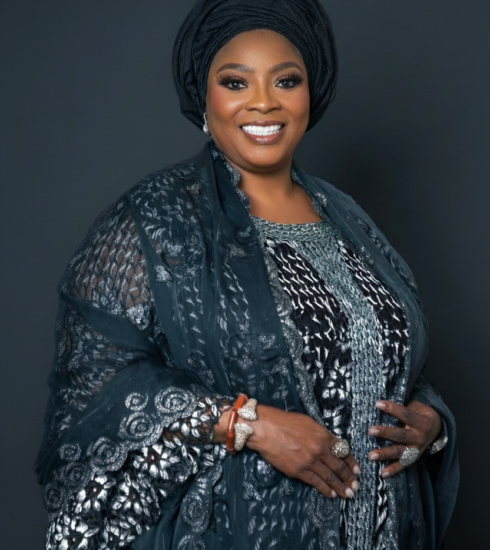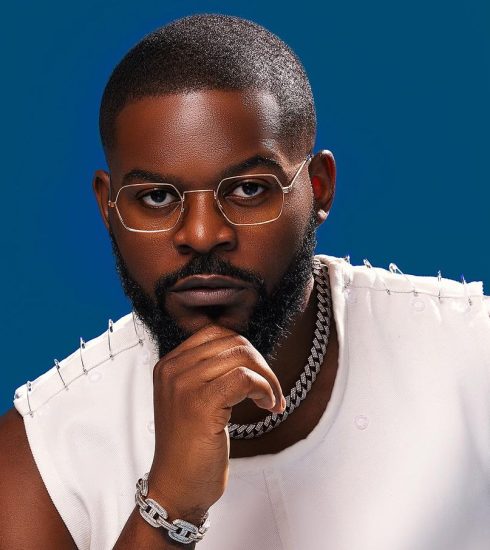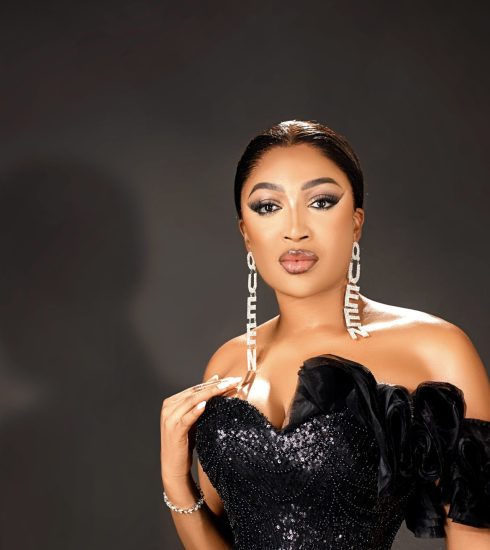For State & Country: Tonye Cole
Next year, the elections will be all we are going to be talking about. It is no surprise the amount of significance it holds. As Nigerians eagerly await the time to exercise their civic responsibility and cast their votes, it is important to remember that the gubernatorial elections have as much direct influence on the country as the presidential election. Oftentimes, when we discuss nation-building, we begin from the top—Aso Vila; however, a country is only as progressive as the different arms of government that make it up.
DOWNTOWN’s Editor, Onah Nwachukwu, had a lengthy manifesto-esque conversation with business tycoon and All Progressives Congress (APC) Governorship candidate, Tonye Cole, to discuss the legal brouhaha that culminated in the removal of his party, the APC, from the ballot in 2019, preventing him from running, his plans to level the playing field for underserved communities—especially women and youth, including older citizens—and how he plans to resuscitate Rivers State back to its glory days, with emphasis on empathy and redefining democracy as a system of government that has the best interest of the people.
Yesterday, the Rivers State government withdrew the charges against you for lack of merit. Congratulations.
Thank you.
What did you think of the charges in the first place, and what does this mean for you in the long run?
First, I had always said there was no basis for that case, and for anyone who cares to know, I’ve always said that the entire documents for the transaction were available in the public domain. And the freedom of information act permits anyone to ask for those documents to see how the transaction went. So I was always confident that the case would not hold based on merit. But essentially, what causes me a lot of joy is the stand of the Judiciary in this. At the end of the day, the case was not just withdrawn; the Judiciary dismissed it, which means that’s the end of it. It’s dead and buried. And it’s a vindication on the fact that the Judiciary has chosen in this dispensation not to be used as a tool of intimidation by any government, so that’s good.
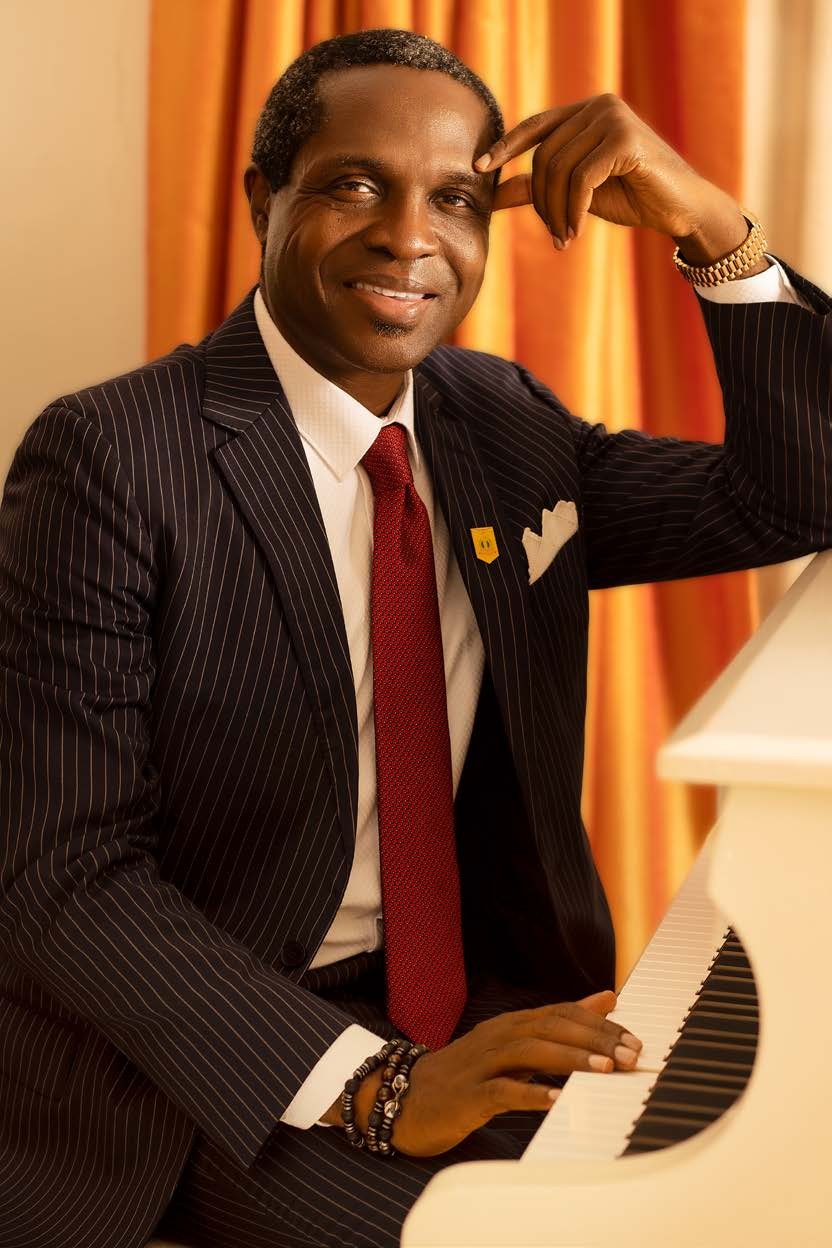
Tonye Cole
You mentioned that you were confident, which is why you continue to run either way?
Absolutely. So two things are happening with the Nigerian electoral system, and I think both are very good for democracy. The first one is INEC realising that they needed to do something about the electoral process, which created a lot of loopholes that politicians took advantage of to rig. As a result, you’ve had the issues of the beavers coming up and all of that, giving voters a lot more confidence to believe that their vote will count. What that has done, in essence, for the political process is that it is now causing politicians like myself to come out as a new wave of a different type of politician coming in that will cause the public to question more about issue-based politics versus religious or sentiment-based politics. So that’s the first thing. INEC is providing that background now.
The second thing is that the Judiciary also realises that they have been at the brunt of a backlash by public perception that the Judiciary is no longer the last line of defence. And it used to be the last line of defence for the common man, so people always felt that they could get to the Judiciary and there was hope once they got there. But a series of judgements in the last couple of years has caused people to begin to doubt the sincerity or honesty of the Judiciary. And I believe that the Judiciary themselves have now looked at it and said, ‘this cannot be good for our reputation. Let us begin to do things differently.’ This case is one case in hand to show that the Judiciary is becoming reliable.
Do you think that people will trust them just based on the judgement you got?
I think once trust is eroded or lost, it takes a long time for it to be restored, so I think this is just part of the journey; this is one. The next one will be another, and the one after that will be another. And as INEC and the Judiciary, both improve in their transparency and the way they handle these processes, I believe the Nigerian people will have a lot more trust in them, and that is good for democracy. We actually need to have an umpire that is unbiased in creating a way forward for individuals who would normally not be in politics to come into politics, and a judiciary they can trust will uphold their victory when the people actually get up and vote for them. I’m hoping this will be the case.
Do you think the people’s voices will be heard this time? Women and the youth especially, what other things can be put in place for them to be listened to?
Democracy in itself is for everyone; it’s not just for men; it includes women and young people as much as it includes the elderly. Where one group—whether majority or minority— feels like they are disenfranchised, it means democracy is not doing what it ought to do. And so the first part is democracy is meant to protect minorities from the oppression of the majority. So we have to look into that. Now when you look at it specifically to the youth and women, then you know that the stronger force in society must arise and protect what you’d see as those who are disenfranchised. For the youth, you have the whole argument about ‘not too young to run’; now, we have to enforce that aspect, so government must be very deliberate about including young people in decision-making. Not just a token; they must be part and parcel of government as commissioners, ministers, and legislators. That’s a deliberate political process; it’s not just the youth wing that should have youth; it’s not just the women’s department that should have women but across board. For women, in particular, one of the things I found out as a he-for-she ambassador over the years, both in the private sector and legislatively, is that many boardrooms are filled with men. Likewise, a lot of the government policy-making apparatus is headed by men. Once you have that, those men have to have very deliberate actions and policies that see women come to the forefront; if not, it won’t happen. And we need to have a he-for-she ambassador in government that will position women legislatively. There was a bill they were trying to pass in the national assembly that was defeated—to have a set number of women in the house, so it was almost like affirmative action.
But essentially, it was working towards ensuring that you have a certain percentage that must be filled by women. I think that has to be pushed. Until we have that part of it done, we will still struggle. How do you intend to fight for that if you come to power? The good thing is that for me, it’s always been an issue; it’s not something I just woke up and chose. I was a he-for-she ambassador in the private sector, where we fought directly for women to become more engaged in our business, especially at the top level. So as a governor, we have to do it. We start by the type of appointments we have, making sure that women are not just given appointments such as the Commissioner For Women Affairs role alone. Those kinds of token appointments don’t hold. We need to ensure that women—very competent women—are heads of parastatals, head of directorates, commissioners, are involved in things people would normally say are for men. We have strong women, and those women must come in. So I intend to push that very hard.
Yes, you did it successfully in the private sector, but this is Government; it is usually a very different operation. Do you think this is as easily attainable as it was for you in the private sector?
Absolutely not; it’s not as easy. But it’s about interest. Two things are at work here. The first aspect of it is you have to deal with interest. How do you protect the interest of men who may be afraid that they would lose out by giving out these positions? You have to balance that. You have to bring an understanding that, this is not about losing out; it’s about inclusivity and increasing the pie. Once you take in 50 percent of the potential that women bring to the table, you actually increase the pie, making it better for everyone. So it’s about negotiations, interests, sitting down and making everyone understand why this is better for everyone, and these are the things that we must work on. So it’s not going to be easy, but it is about negotiating, it’s about interests, and carrying people along.
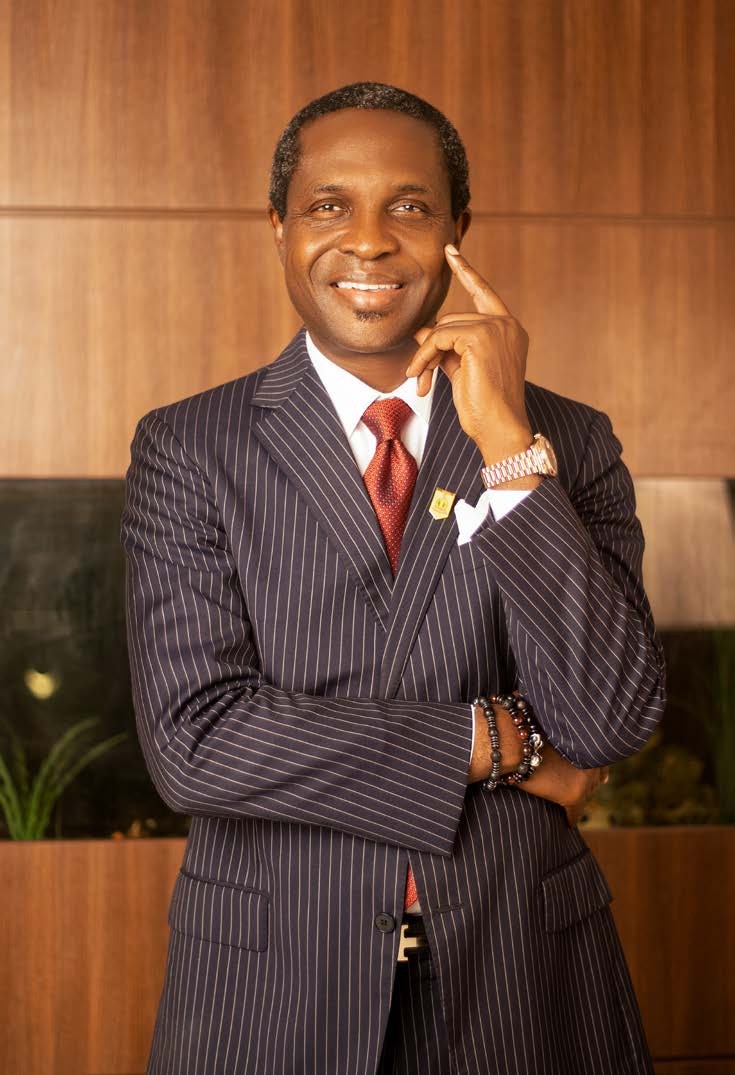
Cover Story Photography by Gift Eghator
You may have moles who are only interested in your downfall. Do you think you have things put in place to check that should they arise?
They will arise. And I think one of the things that you learn very quickly in politics is that everybody is important. You cannot ignore even the feelings of one individual. You are not going to be able to solve all the problems, but if you are a manager of people, empathetic about them and a good listener, you’re also able to accommodate your shortcomings, correct your errors and move forward, then people see that you are authentic about what you do. And there’s something about being authentic; when people realise that you mean well, they are willing to give you a bit more leeway. And I do mean well. I mean well when it comes to uplifting the downtrodden, inclusion of women and youth into government, I mean well when it comes to spreading and ensuring that far-flung places are brought to the centre and help reaches them. I think when people begin to see that you actually mean well for them, they are willing to go the extra mile to help you achieve your goals. But they have to trust you, and that is where the work is. The work is making them see that your intention is not for yourself looking to the government to line your pocket or patronage of your cronies, but it’s you doing everything to ensure that those in need get the help they need.
Speaking of trust, I find that many people just don’t trust the country or government anymore and would rather leave the country. You, however, recently ran a poll on Instagram asking people about the japa trend versus staying and making Nigeria better. Would you say that you got the information you wanted from that poll?
Yes, we did. Essentially, you’d see that in any kind of situation, people vote with their feet. If they don’t trust a place or government, they will move. The real voting is done with the feet. When people are migrating, it is because of their belief that their social contract with the government has ended, so they look for where they can go to re-establish that social contract. When you know the problem, that’s halfway through the solution. So the first aspect is that there is a lack of trust in the ability of the government to secure a future for individuals; and it’s not new, these are cycles, and they happen with every generation. Every 10 to 20 years or so, we see this mass exodus of people. But it does not mean that we are condemned to this cycle; something has to change. And when it changes, you find that you begin to have a reversal of that voting by the feet because then people vote to come back, or the ones still here, stay. And this is what, as a government, we have to do. So the first step for me in Rivers State is to ensure that those who left the state, especially businesses that moved out to Lagos and Abuja, can return to Rivers State. And that’s the first vote of confidence they have in saying that something has changed within these dynamics to give us trust in the future. Once you begin to show that you are able to create that environment that enables businesses to come back, you are doing well. It’s almost simultaneously for the second level. So, on the one hand, you are stopping businesses from going, but for those who have stayed, you need to stop them from leaving, at the same time attracting those who left to come back. Once you can achieve that, you’ll find that the next step is that if businesses can stay, and others can come, they begin to create job opportunities that will begin to satisfy people who normally would have japa’d. Because now, they can see hope for themselves that they can finish school and get a job, or even if they can’t get the job that they apply for, they can see there’s an opportunity to use their entrepreneurial skills, and they will make a living. Once you can do those two things, you will find that people are unlikely to leave. I’ve found over time that if you can excel at home and you have the opportunity to travel and come back, it’s far more preferable thank for you to japa somewhere and be a second-class citizen. You might have light, water and all the basic things, but you are never right there at the top. For years people have always wanted to return, to help, to see what they can do.
We need to create that environment, so we’ll start doing that with Rivers State. Once you have Rivers State doing that, and other states with progressive governors who understand what it means to create a safe environment for businesses, families and education, you will see that Nigeria will start getting better because one state governor can influence another to say if they can do it there, why can’t we do it here? My target has always been Lagos because Lagos and Port Harcourt were at par many years ago. People would either come to Lagos or go to Port Harcourt, and it was always a choice. 20 years later, it reversed. Why? What did Lagos State do that Rivers State didn’t? Once we can answer that question, the target for me is to reverse that trend so that Rivers State becomes the first line of call for any investment, any young person in school, youth corper, business person; such that when someone sits down wherever they are, and decides that they want to better their lot and are looking for places to go for opportunities, the first place they are going to think about is not Scotland or Canada, it should be Rivers State because it is close to home, and they can succeed. That’s what I want them to do, and we’ll get there.
You kind of answered this already, but in taking Rivers State back to where it used to be, how will you tackle a major issue there—the hoodlums and cults?
Firstly, that’s a mindset and economic issue. When people lose hope in education, business or in the government, when they lose hope in the social fabric that gives them an anchor to become anything, then you find that crime begins to rise, insecurity takes a prominenence, cult groups begin to form the social fabric with which the young people hold on to because through that fabric, there’s an ability to use violence to take things. They can walk into a shop and take things that normally they’d have had to work hard to pay for. So you need to change that mindset. So for us as a government, it becomes important to show that that social fabric that’s creating a better tomorrow begins with each one of us today. We must enter into that social contract and be ready to feed the man today for him to be able to look at what hope tomorrow holds. And how do you show somebody that you’re ready to feed them today? It’s about empathy. You must be able to sit down, listen, and understand what worries them now. And begin to provide the short-term low-hangingfruits solutions that will answer to now, such that they can begin to listen to you when you are telling them about tomorrow. So one of the things that I had to do essentially was to go around from place to place to see what the people are doing, and what are the community needs. What are they looking for? What do they answer to? I’ll give you a typical example. I went to the Orashiri region in Rivers State, and that area is predominantly agricultural. But guess what, every year without fail, the place is flooded. So if you are a farmer in that area, you cannot plan for anything beyond two months or dry season farming because as soon as the rain starts, all your production is lost, and your homes are flooded, which means that they are doomed to poverty if nothing is done. We know it’s going to flood, and we know that the area is agricultural. We know that they are susceptible to water-borne diseases because of the flood, so what do we do about it?
We don’t simply fold our hands; we have to think about how to solve those problems of flooding within that area so that people can be lifted out of poverty. There’s another example, a place in the northern part of the Abua local government. For you to access that area, you have to leave Rivers as if you’re going to Benin, making a U-turn between states. Meanwhile, it takes nothing to have a link road that cuts through the middle. Nobody thinks about the cost of produce that has to leave these places because, by the time they go through all of these journeys, their produce is lost. So you need to be able to think about these things and how you address the little issues that affect people in their communities. When they see that you are sincere about solving their problems, they are more willing to be less militant.
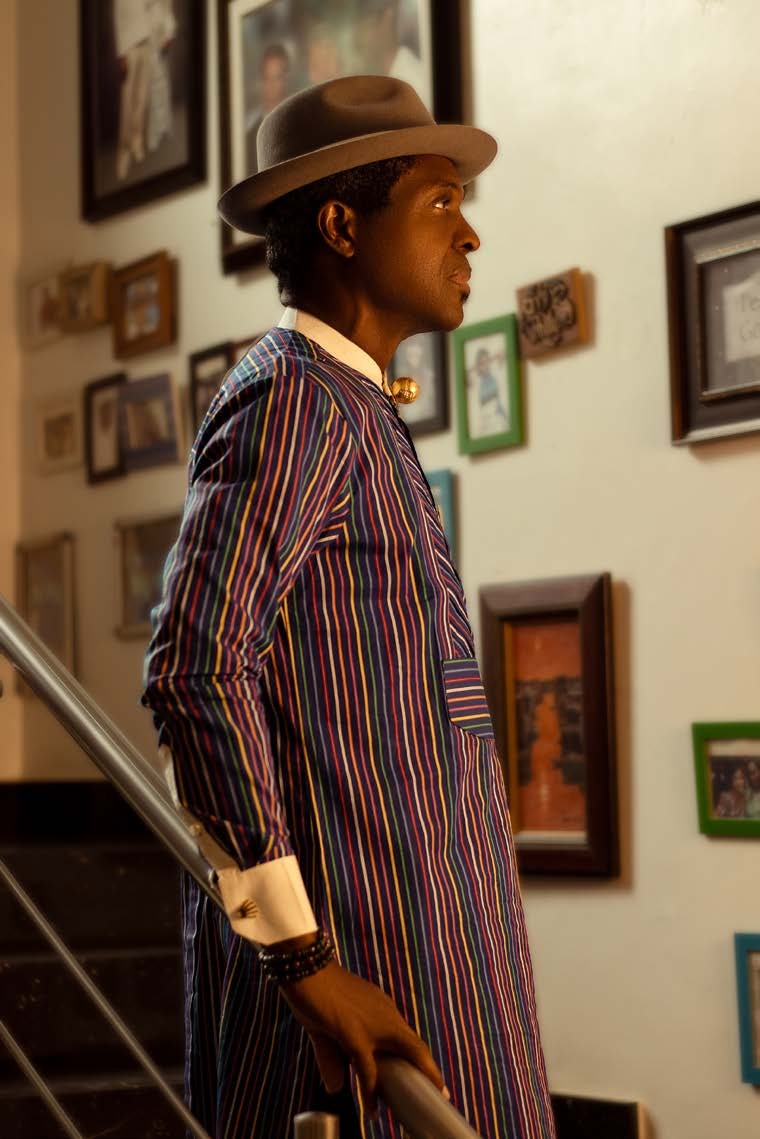
Tonye
You spoke about the not-too-young-to-run bill, but one of the issues that plague them is the older generation’s hesitation to embrace change and progressive ideas. Where are we going?
Technology and innovation, by their very nature, are disruptive. This means young people, by their nature, are disruptive as well. But disruption is not a bad thing. When you say disruptive, people think you mean negative, but it doesn’t have to be. Everything that we are using today— as you see with old people using Facebook and Instagram to communicate—is because someone who was 20-something years old somewhere disrupted an old system. So I have absolutely no problem with disruption. I think that if we are going to progress and excel in this world, then we must encourage innovation and disruption. Now, at the same time that you are doing that, you are also balancing all of that with what you call the fear of the future. And so what you see with the older generation is a fear of what tomorrow brings. If the system has already shown that pensions, gratuities, and the way our society often forgets older people and pushes them aside, then we’d see that the older generation will continue to do two things: One, they will fight to hold on to power, such that you’ll have very old grandfathers competing actively for jobs that their grandchildren should be doing—positions in government.
If I went into government today, I am almost certain that on the first day of being sworn in, I would get applications from people in their 70s and 80s, ready to take up the job of a commissioner, something that their children should be doing. Now it doesn’t mean that once you are elderly, you no longer have a role to play. Some elderly people have very potent roles to play. What matters in all of this is that you are willing to show those who are elderly that there is a path for them. What concerns an elderly fellow? Three things: One is respect; social respect to the elderly is very important as people who have lived through life want to be respected for either what they have given or what they have or are yet to give. The second thing that every elderly person doesn’t want to worry about is their health. They want to be sure that the basic things that a check should do, they should have it accessible and affordable. Many old people retire from the hustle of the city and go back home, but why will they do that if they get back there and have no access to affordable healthcare? The third thing older people want is some dignity, which is close to respect, but the dignity in this aspect is that they don’t want to have to become beggars. Now what you see a lot today is that almost everybody here has become a beggarly society. Even old people are now hard-pressed, and with a lot of shame, they have to now beg you for money to feed. It is totally unnecessary, and so as a government, we need to be able to address these issues for the elderly.
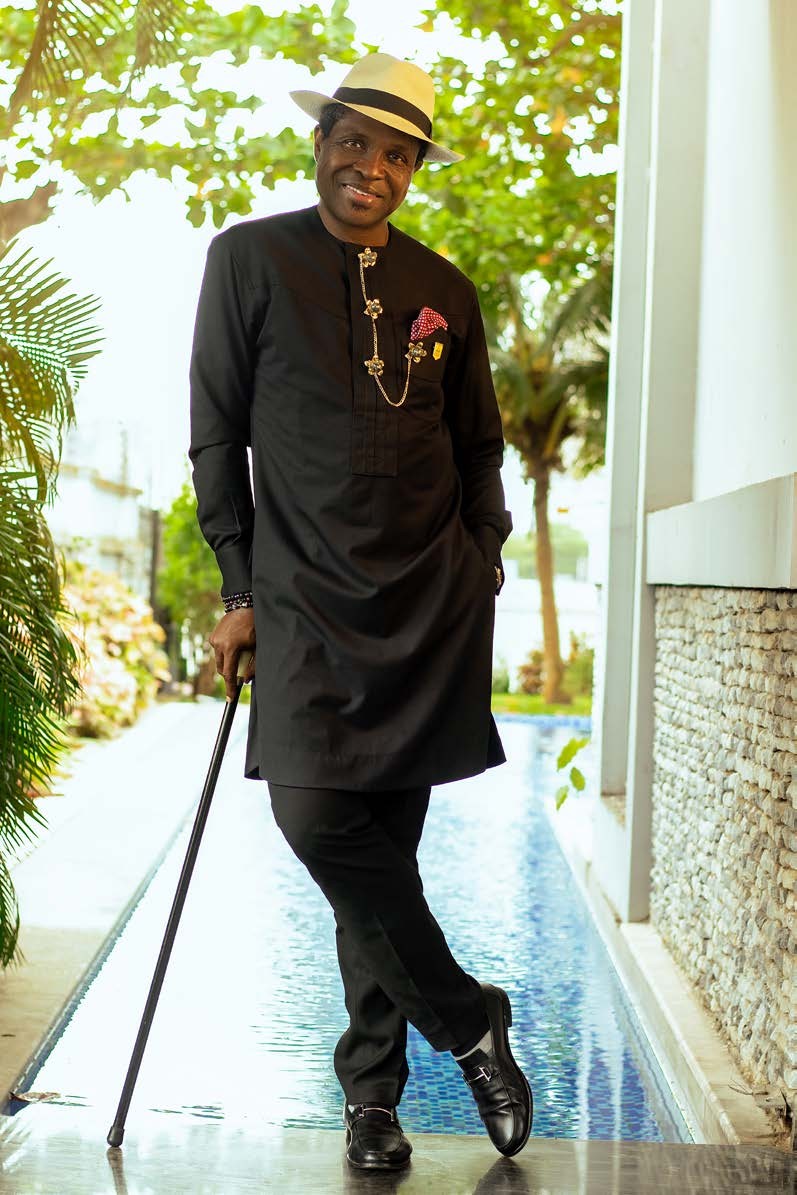
How do you address these issues for the elderly?
If you are meant to dole out cash and put all of these things in place, you will find that you don’t have enough money to do them; and so in social engineering, you find out that one thing leads to another.
Where the bulk of the energy is to create an environment that will ensure that the middle class is built and strengthened to take the weight off the government, grandparents, and elderly is where we need to focus. And that’s focusing on entrepreneurship, the youth, and harnessing their strength for innovation and breakthrough, giving them an environment that enables them to work. Once you can do all of that and increase that aspect, you can take resources from what they are doing to finance and fund the kind of things that you need for the elderly. If your workforce is decimated, you will not be able to do what needs to be done. Unfortunately, in Nigeria, we look at FAQ, we look at the allocation that comes from the centre, and IGR (internally generated revenue) that is set from oil companies, banks, and all of that. It’s not enough to do what needs to be done, and that’s where we have a bane. So you must understand the power that is inherent in a youthful population that is entrepreneurial and innovative. It generates more income than you can believe. There’s a lot of work to be done, but it’s doable.
How can younger people be part of nation-building?
It’s about engagement. Over the past couple of years, I’ve spoken to young people and for almost every one of them, by the time you engage with them on the potential and they see the part that they play, most of them change their minds about the role that they have to play in building Nigeria. I run an online mentorship program on nationbuilding; I started during the COVID lockdown when everyone was just sitting at home, and we had a captive audience; it’s called ‘Mind Swap’, and it’s continued till now. I called a couple of young people that I’ve mentored over the years and asked them to put together a program that addresses young people, we’ll mentor them and invite people to speak to them about the potential and what life brings. We’ve had four cohorts now, and each one of them has produced a fire in the young people. Some have decided that they are going to be very active in politics, some have become card-carrying members of parties, some are now saying they are going to run for office, and others have dedicated their businesses towards how they can improve the nation. Now, these are people who, under normal circumstances, their mindset was that they were going to leave. But they’ve changed their mind. I’m also involved in a program set up by Oby Ezekwesili called ‘Fix Politics.’ It’s a program that basically talks about a 3-tier approach to fixing Nigerian politics. Why I bring these things up is that we are not devoid of people who want to rebuild Nigeria. Nigeria actually has many people who want to do something and what they need is the avenue to do it. What they need is people like me who have gone out ahead to then show the way, and they will follow.
In showing the way, you admitted that you and your peers should have done that ages ago.
We should have o.
How do you feel about that; any regrets? Do you feel that you started this too late?
No, I don’t regret it. I wouldn’t call it regret because, on the one hand, what it did was it also led us to build the businesses and industries we built, whether it’s in banking, insurance, oil and gas; all my generational peers have done all of these things. But what it has given us is the perspective of wisdom that comes with age, whereby we now see the folly of ignoring politics. So it gives us the gravitas and authority to be able to speak to the next generation of young people to say ‘you don’t have to make the same mistakes; you don’t have to do things the way we’ve done it.’ So it’s important that you get into the political space, be very aware of what’s happening in politics, and don’t ignore it because it will affect your future. So no regrets, but what we are now doing is making sure that the young people of today are as invested in politics as we are.
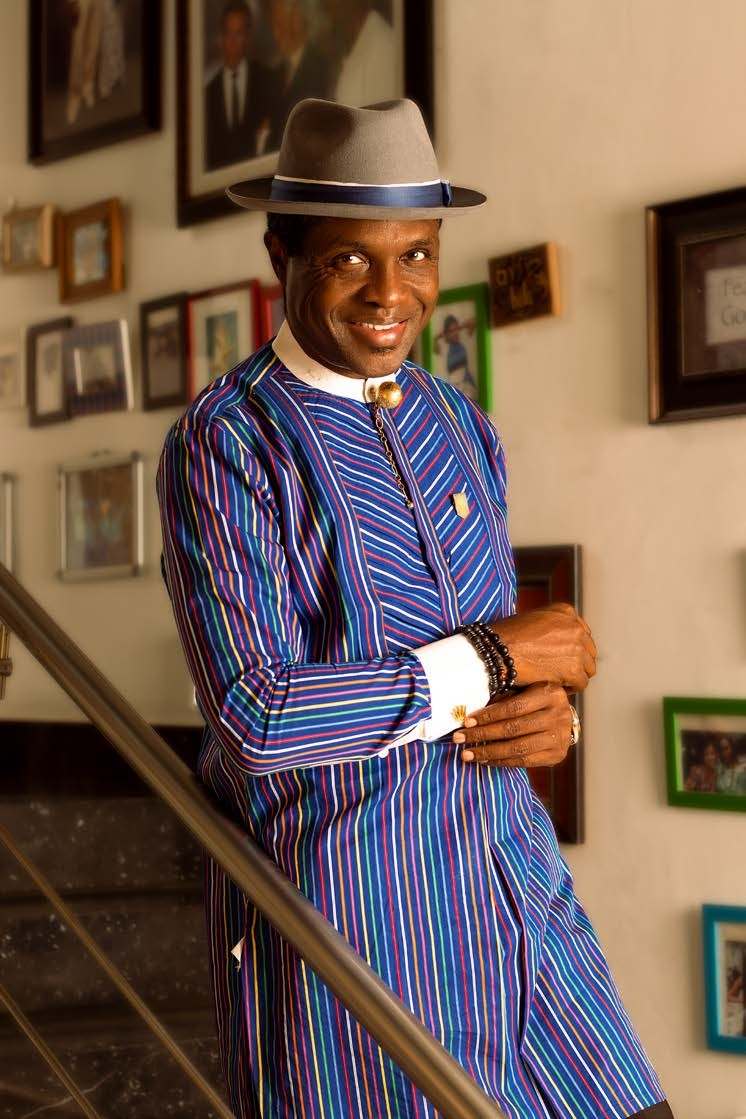
A lot of times, people in government don’t exactly see businessmen as being able to run a country. This is not the first time you’ve tried; they dug up all sorts of cases and reasons why you were not qualified to run on your first attempt. Luckily for you, the case has been withdrawn. How confident are you about winning?
One hundred percent. Many things are different from the last time that I ran. Business people, we don’t like to fail. We are analytical and take calculated risks, but more importantly, we self-improve and learn from errors very quickly. So in the first round that I went through, I quickly realised that one of the missing things was an understanding of how policy impacts people. So I went to the National Institute for Policy and Strategic Studies (NIPSS), and it was essentially a deep-dive and an eye-opener to the value of policy, and understanding the intertwining relationships between the civil servants, public servants, organised business sectors and politicians, plus the military and all the other arms of military service in the government. That experience for me was priceless. I threw myself into learning, and I’ve come out from NIPSS a deeper person when it comes to the power of enacting good workable policies to help transform the lives of people and individuals. Then I also went to another equivalent of what you’d find in NIPSS. I became a Transformational Fellow at the Blavatnik School of Governance. And why this was important for me was to look at governance at a global level, with best practices in mind, but more about an interaction with people who are in governance, politics, civil servants, and policymakers across board in different countries, and it enabled me to see that many things are similar to Nigeria and how people address them differently. Iron sharpens iron, you get to know what people are doing, and you don’t have to repeat the experiment. So coming in this time around, I’m a lot deeper, and more confident. I learnt from people who have sat down and studied scientifically the entire process of democracy. And one of the things that I came to understand fully is that democracy means different things to different people. It’s one word that everybody uses, but what democracy means to you as a journalist in Nigeria, and what it means to me are two different things.
When you start breaking down democracy into what it really is, you will find out that it is a very loose word that is not defined. If you ask people what democracy is, they will tell you that it is a Government of the people, for the people, and by the people. But it’s much deeper than that. And what I then learnt is that every country must define what democracy means for it, and then work that democracy to the best advantage for its people, and that’s where we will start. Rivers State will define what democracy means for it, how it’s going to uplift its people out of poverty, how it’s going to position its people and its state for the opportunities that arise, how it moves from being a very wealthy state with very poor people to being a super wealthy state with tremendously super-wealthy citizens. That’s how it must be. America has citizens that are richer than the country. It’s possible to have Nigerians who sit in a state and are richer than the state.

I see you are quite confident about winning this time.
Oh, this time, we are winning.
What happens if you don’t win; what’s next?
We are here. For me, it was a long-term goal. When I left Sahara, I left with a clear purpose in mind— that I was going to give 20 years of my life to politics. And in the 20 years of my life, it was enough time to sit down and look. And if I had dedicated 23 years of the first part of my life to business and I attained what I did in business, then I expect that if I give 20 years of the last part of my very strong and active life to politics, I should do much more than I’ve ever done in business. So I’m not going anywhere. If we don’t win this time around, what would happen essentially is I would have become a force to reckon with in politics and shaping the narrative of politics, not just in Rivers state but also nationally.
So there’s no loss. An old politician told me this; you never lose in politics. When you run for office, if you don’t get it that time around, you have gained a lot more, a lot of experience, prestige, people—friends and enemies as well, but you are better than where you were the last time. Now you use that to launch the next phase of what you are going to do in politics. My politics is a 20- year journey. At the end of 20 years, the face and dynamics of politics in Nigeria should have changed so dramatically that I would be able to sit down in my beach home and say, “Yes, we did it; we changed Nigerian politics.” Rivers State is part of the journey; it is not the final bus stop.
A lawyer by training, Onah packs over a decade of experience in both editorial and managerial capacities.
Nwachukwu began her career at THISDAY Style before her appointment as Editor of HELLO! NIGERIA, the sole African franchise of the international magazine, HELLO!
Thereafter, she served as Group Editor-in-Chief at TrueTales Publications, publishers of Complete Fashion, HINTS, HELLO! NIGERIA and Beauty Box.
Onah has interviewed among others, Forbes’ richest black woman in the world, Folorunso Alakija, seven-time grand slam tennis champion, Roger Federer, singer Miley Cyrus, Ex Governor of Akwa Ibom State, Godswill Akpabio while coordinating interviews with Nigerian football legend, Jayjay Okocha, and many more.
In the past, she organised a few publicity projects for the Italian Consulate, Lagos, Nigeria under one time Consul General, Stefano De Leo. Some other brands under her portfolio during her time as a Publicity Consultant include international brands in Nigeria such as Grey Goose, Martini, Escudo Rojo, Chivas, Martell Absolut Elix, and Absolut Vodka.
Onah currently works as the Editor of TheWill DOWNTOWN.





